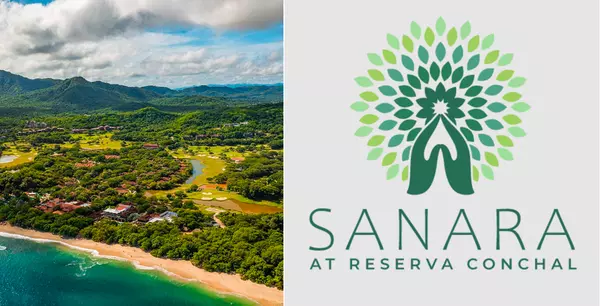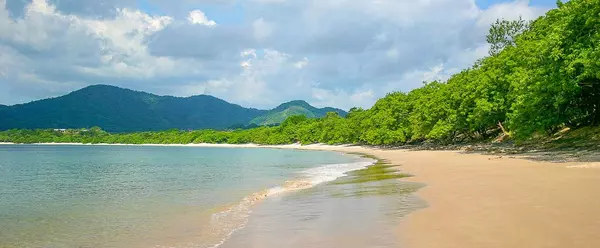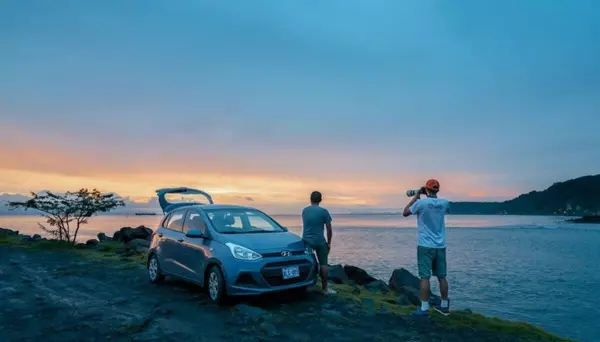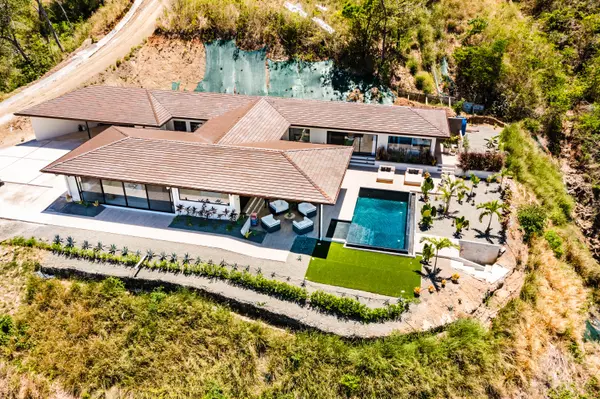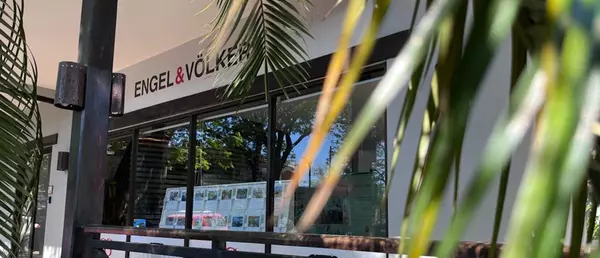The Ultimate Guide to Buying a Car in Costa Rica

Introduction
Buying a car in Costa Rica can be an exciting and essential step for residents and expatriates alike, offering independence and convenience for exploring this diverse and beautiful country. However, navigating the car buying process in Costa Rica requires careful consideration of various factors, including where to find cars, prices, popular brands, negotiations, using a lawyer, registration process, yearly inspections, and insurance. In this comprehensive guide, we will take you through each step of buying a car in Costa Rica, empowering you with valuable insights and tips to make a well-informed decision and a smooth car buying experience. In this guide we wil cover the following subjects :
-
-
- Can non-residents buy a car in Costa Rica ?
- Identifying Your Needs - to choose the right type of vehicle
- Setting a Budget – to plan your Purchase
- Where to Find Cars for sale - to find the best deals
- Prices and Popular Brands – to be prepared for sticker shock
- Test Drive and Vehicle Inspection - to know what you are buying
- Negotiations – To get the best deal and peace of mind
- Payment and Transfer of Ownership – to understand the process
- Registration Process – To plan every step
- Insurance – to cover your purchase
- Maintenance and Care – to get longevity out of your vehicle
- Yearly Inspections – to prepare for the RTV (Revisión Técnica de Vehículos)
-
1. Can non-residents buy a car in Costa Rica ?
In Costa Rica, non-residents have the right to buy a car without any legal restrictions. The country welcomes foreign nationals to purchase vehicles and experience the freedom of driving within its borders. Whether you are a tourist, an expatriate, or a foreign investor, you can legally acquire a car for personal use or business purposes. As a non-resident, you will be subject to the same rules and regulations as residents when buying a car, ensuring a fair and equitable process for all buyers. It's important to note that while non-residents have the right to buy a car, they may need to provide specific documentation, such as a valid passport and proof of legal entry into the country. Additionally, some car sellers or dealerships may require non-resident buyers to present additional forms of identification or proof of residence in their home country.
2. Identifying Your Needs - to choose the right type of vehicule

The recommended type of vehicle to buy in Costa Rica depends on various factors, including your specific needs, budget, and intended usage. Considering the diverse terrain, weather conditions, and road infrastructure in Costa Rica, here are some types of vehicles that are commonly preferred:
-
- Compact SUVs and Crossovers: Compact SUVs and crossovers are popular choices in Costa Rica due to their versatility. They offer a higher ground clearance, making them suitable for navigating rough roads and challenging terrains. Additionally, these vehicles often have spacious interiors and ample cargo capacity, making them ideal for family trips and outdoor adventures.
- Pickup Trucks: Pickup trucks are well-suited for Costa Rica's rural areas and non-paved roads. They provide ample cargo space, making them perfect for transporting goods or equipment. Moreover, the 4x4 capability of many pickup trucks ensures better traction in challenging driving conditions.
- Hatchbacks and Sedans: Hatchbacks and sedans are more commonly found in urban areas and are ideal for city driving. They offer better fuel efficiency compared to larger vehicles and are well-suited for daily commuting and shorter distances.
- All-Wheel Drive Vehicles: Given Costa Rica's unpredictable weather and varying road conditions, vehicles with all-wheel drive (AWD) or four-wheel drive (4WD) can provide better traction and stability.
- Hybrid or Fuel-Efficient Cars: Considering the higher fuel prices in Costa Rica, choosing a hybrid or fuel-efficient car can help you save on long-term fuel expenses and reduce your environmental impact.
- Reliable and Well-Known Brands: Opt for vehicles from reliable and well-known brands with good service and maintenance networks in Costa Rica. Popular brands like Toyota, Honda, Nissan, and Hyundai are commonly recommended due to their wide availability of spare parts and reliable performance.
- Consider Resale Value: Since vehicle depreciation can be relatively high in Costa Rica, it's beneficial to choose a car with good resale value to retain its worth in the future.
Ultimately, the recommended type of vehicle will depend on your individual preferences and priorities. If possible, test drive various models and consult with local experts to ensure you find the best vehicle that aligns with your needs and budget in Costa Rica.
3. Setting a Budget – to Under Costs and Price Differences

Before purchasing a car in Costa Rica, it's crucial to set a budget that aligns with your financial capabilities and takes into account the costs associated with buying and owning a vehicle in the country. Here's a comprehensive guide on how to establish a reasonable budget:
-
- Initial Cost: Consider the initial cost of buying the car. This includes the purchase price of the vehicle itself, as well as any applicable taxes, import duties, and other fees. Prices in USD for cars in Costa Rica can vary quite significantly based on factors such as the make, model, year, and condition of the vehicle.
- Example: In Costa Rica, a brand-new Toyota 4 Runner may cost around $72,000 to $78,000, depending on the model and features. However, the same model is significantly cheaper in the USA due to different market dynamics, costing around $40,000 to $46,000.
- Maintenance and Repairs: Factor in the cost of maintaining and repairing the car. Costa Rica's diverse terrain and climate can put additional strain on the vehicle, resulting in more frequent maintenance requirements and potential repair expenses.
- Example: Regular maintenance costs, such as oil changes and basic services, may amount to around $200 to $500 per year. However, more significant repairs, such as engine or transmission overhauls, can cost several thousand dollars.
- Fuel Efficiency: Consider the fuel efficiency of the car, as gasoline prices in Costa Rica can be higher than in some other countries. A more fuel-efficient vehicle can help save on long-term operating costs.
- Example: If you drive 10,000 miles per year and the car has an average fuel efficiency of 25 miles per gallon, you may spend around $1,600 to $2,000 on gasoline annually, assuming a gasoline price of $4 per gallon. However, with a more fuel-efficient car achieving 35 miles per gallon, you could reduce the annual fuel cost to $1,142 to $1,457.
- Insurance Premiums:Factor in the cost of car insurance, which is essential for protecting yourself and the vehicle. Insurance premiums can vary based on the car's value, coverage options, your driving history, and other factors.
- Example: For a new car valued at $20,000, comprehensive insurance coverage might cost around $800 to $1,200 per year. However, for the same car in the USA, insurance premiums could be slightly lower, ranging from $600 to $1,000 per year.
- Initial Cost: Consider the initial cost of buying the car. This includes the purchase price of the vehicle itself, as well as any applicable taxes, import duties, and other fees. Prices in USD for cars in Costa Rica can vary quite significantly based on factors such as the make, model, year, and condition of the vehicle.
4. Where to Find Cars for sale - to find the best deals
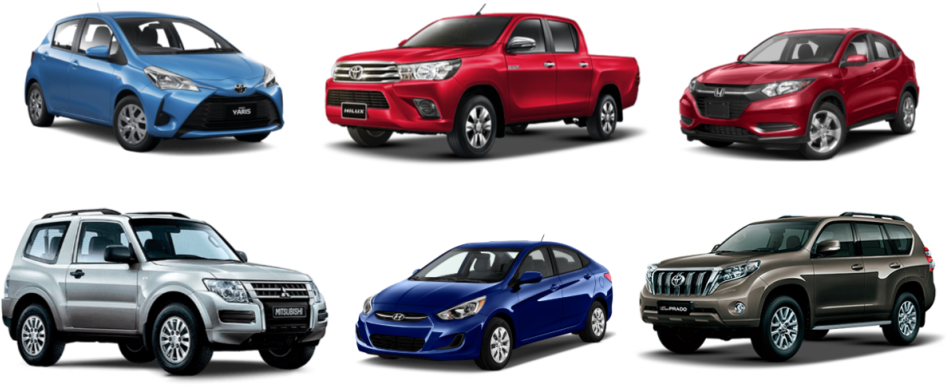
Finding cars for sale in Costa Rica can be achieved through various channels, both online and offline. Here are some key places where you can explore car listings:
- Online Classified Websites:
- Encuentra24: A popular online classifieds platform in Costa Rica, Encuentra24 offers a wide range of car listings from both dealerships and private sellers.
- OLX Costa Rica: OLX is another online marketplace where you can find new and used cars for sale.
- Craigslist Costa Rica: While not as widely used as in other countries, Craigslist may have some car listings in Costa Rica.
- Car Dealerships: Visit authorized dealerships of popular car brands, as they often have a diverse inventory of new and used cars available for sale.
- Social Media:
- Check out Facebook Marketplace within the area you will be living in.
- Join Costa Rican car enthusiast groups on platforms like Facebook. These groups often have members who post cars for sale or share valuable information about the car market.
- Newspapers and Magazines:Check local newspapers and car magazines, as they may have classified sections featuring cars for sale.
- Word of Mouth: inform friends, colleagues, or acquaintances that you are looking to buy a car. They may know someone who is selling a vehicle.
- Used Car Lots and Showrooms: Visit local used car lots and showrooms, especially in urban areas and major cities.
- Auctions and Auto Fairs: Keep an eye out for car auctions or auto fairs that take place in Costa Rica. These events can offer a wide selection of vehicles for sale.
Important Tips:
-
- Verify the Seller: Whether buying from a private individual or a dealership, ensure that the seller has all the necessary documentation and a clean title to transfer ownership legally.
- Vehicle History Report: Request a vehicle history report to check for any accident history or outstanding loans on the car.
- Inspection and Test Drive: Always inspect the car thoroughly and take it for a test drive before making a purchase. If possible, seek the assistance of a trusted mechanic to evaluate the vehicle's condition.
- Negotiate the Price: Don't hesitate to negotiate the price with the seller, especially if you have done your research on the fair market value of the car.
- Be Cautious of Scams: Be cautious of scams or fraudulent listings. If something seems too good to be true, it's best to investigate further or avoid the deal altogether.
Remember to take your time and do thorough research before making a final decision. With careful consideration and due diligence, you can find a reliable and suitable car that meets your needs and budget in Costa Rica.
5. Prices and Popular Brands – to be prepared for sticker shock

Understanding Car Prices in Costa Rica: Before buying a car in Costa Rica, it's crucial to understand the factors that influence much higher car prices in the country. Several key factors contribute to the pricing structure:
-
- Import Taxes and Duties: Costa Rica imposes significant import taxes and duties on vehicles, which can significantly increase the overall cost of cars. These taxes are based on the vehicle's value, engine capacity, and age, and they can range from 52% to over 79% of the car's CIF (Cost, Insurance, and Freight) value.
- Currency Exchange Rates: Fluctuations in currency exchange rates can impact the cost of imported cars, especially for vehicles sourced from countries with different currencies.
- Demand and Supply: The demand for certain car models can influence their prices in the local market. Popular car models with high demand may come with a premium, while less sought-after models might be more budget-friendly.
- Condition and Mileage: For used cars, the condition and mileage play a significant role in determining their price. Well-maintained cars with lower mileage generally command higher prices.
Average Car Prices in Costa Rica: Car prices in Costa Rica can be higher compared to some other countries due to the import taxes and duties mentioned earlier. As of [current year], here's a general overview of average USD car prices in Costa Rica based on popular car categories:
-
- Compact Cars: Compact cars, such as the Toyota Corolla, Honda Civic, and Hyundai Accent, typically start around $23,000 to $29,000 for new models. Used compact cars in good condition can be found for around $12,000 to $18,000, depending on factors like mileage and year of manufacture.
- SUVs: SUVs, like the Toyota RAV4, Honda CR-V, and Hyundai Tucson, are popular choices for their versatility and space. New SUVs in Costa Rica generally start around $37,000 to $48,000 while used models range from $20,000 to $30,000 or more.
- Pickup Trucks: Pickup trucks, including the Toyota Hilux, Nissan Frontier, and Ford Ranger, are commonly used for both personal and commercial purposes. New pickup trucks typically start around $40,000 to $55,000, while used models can be found for $20,000 to $35,000.
Other Considerations affecting price ;
-
- Negotiating the Price: Given the relatively higher car prices in Costa Rica, negotiating with the seller becomes a critical aspect of the car buying process. Before engaging in negotiations, conduct thorough research on the fair market value of the specific car model you're interested in. Consider seeking multiple quotes from different sellers to compare prices and leverage this information during negotiations. Be prepared to walk away from a deal if the price doesn't align with your budget or the car's actual value.
- Financing Options: If the upfront cost of buying a car is beyond your budget, explore financing options available in Costa Rica. Local banks and financial institutions offer car loans with varying interest rates and repayment terms. Compare the terms offered by different lenders to secure the most favorable financing arrangement.
- Customization Costs: If you have specific customization preferences, such as adding accessories or modifications to the car, factor in these costs when determining the overall price. Ensure that any customization adheres to local regulations and safety standards.
Popular Car Brands in Costa Rica
Certain car brands enjoy widespread popularity in Costa Rica due to their reliability, fuel efficiency, and availability of spare parts and service centers. The following are some of the most popular car brands in the country:
-
- Toyota: Known for its durability and reliability, Toyota is one of the most favored car brands in Costa Rica. Models like the Yaris, Corolla, and RAV4 are commonly seen on Costa Rican roads.
- Honda: Honda cars are appreciated for their performance and value. The Honda Fit, CR-V, and Civic are among the popular choices in the market.
- Nissan: Nissan offers a diverse range of vehicles suitable for various needs. The Nissan Frontier, Sentra, and X-Trail are well-received in the Costa Rican market.
- Hyundai: Hyundai has gained popularity for its modern design and competitive pricing. Models like the Tucson, Accent, and Santa Fe have a strong presence in the country.
6. Test Drive and Vehicle Inspection - to know what you are buying

When purchasing a car in Costa Rica, conducting a comprehensive test drive, inspection, and Revisión Técnica de Vehículos (Technical Vehicle Inspection) are vital steps to ensure the vehicle's condition and compliance with safety and emissions standards. Here's a detailed guide on how to perform a thorough evaluation:
Test Drive:
-
- Scheduling the Test Drive: Set aside sufficient time for the test drive to thoroughly assess the car's performance. Schedule the test drive during the day to have better visibility and inspect the car under natural light.
- Driving Conditions: Choose a route that includes a mix of road types, such as highways, city streets, and uneven surfaces. This will allow you to experience the car's handling in different situations.
- Starting from Cold: Start the test drive with a cold engine, as it can reveal potential issues with the car's ignition and engine performance.
- Vehicle Systems Check: Test all vehicle systems, including brakes, accelerator, transmission, air conditioning, lights, windshield wipers, and indicators. Listen for unusual noises and vibrations.
- Handling and Comfort: Evaluate the car's handling, steering responsiveness, and suspension. Pay attention to the comfort of the seats and overall driving experience.
- Brake Performance: Test the brakes in a safe area to ensure they respond promptly and smoothly. Look for signs of abnormal brake noise or performance.
- Acceleration and Deceleration: Observe the car's acceleration and deceleration to assess its power and responsiveness.
- Parking and Visibility: Park the car and check the visibility from all mirrors and angles. Ensure that the parking brake engages and disengages properly.
Vehicle Inspection:
-
- Exterior Inspection: Check the exterior for any signs of damage, rust, or mismatched paint. Look for dents, scratches, and signs of previous accidents.
- Interior Inspection: Examine the interior for wear and tear, damaged upholstery, worn-out controls, and malfunctioning features.
- Under the Hood: Inspect the engine compartment for leaks, unusual sounds, and signs of poor maintenance. Check fluid levels, belts, and hoses.
- Tire Condition: Check the tires for wear and ensure they have sufficient tread depth. Uneven wear patterns may indicate alignment or suspension issues.
- Suspension Check: Test the suspension by bouncing each corner of the car. The car should bounce back smoothly without excessive movement or noise.
- Underneath the Car: If possible, inspect the underside for leaks, damage, or rust.
- RTV: Making sure to cover all element that will be including in the yearly inspactions process ( Revisión Técnica de Vehículos)
Seeking Professional Assistance:
If you are not knowledgeable about car mechanics, consider hiring a trusted mechanic to perform a comprehensive inspection before finalizing the purchase. A professional inspection can identify potential issues that may not be apparent during a test drive and provide an expert evaluation of the car's condition.
Vehicle History Report
Request a vehicle history report to obtain information about the car's past accidents, maintenance records, and ownership history.
7. Negotiations – To get the best deal and peace of mind

When buying a car in Costa Rica, negotiations with the seller are common, and it's essential to approach this process strategically. Research the market value of the car model you are interested in and compare prices from different sources, such as dealerships, online platforms, and private sellers. Armed with this information, you can confidently negotiate for a fair price.
Our recommendation : Use a Lawyer
-
- Advantages of Using a Lawyer: While using a lawyer during the car buying process is not a legal requirement, it can offer significant advantages and peace of mind. Here are some reasons why you might consider involving a lawyer in the transaction:
- Legal Protection: A lawyer can review all the paperwork associated with the car purchase, including the sales contract and title documents, to ensure there are no legal issues or hidden liabilities. They can also verify the seller's ownership rights, protecting you from potential scams or disputes in the future.
- Language Barrier: If you're not fluent in Spanish, navigating the legal aspects of a car purchase in Costa Rica might be challenging. A lawyer who is familiar with the local language and legal system can help you understand the contract terms and any potential legal implications.
- Expert Guidance: Buying a car involves complex legal procedures, and laws may vary depending on the region in Costa Rica. An experienced lawyer can guide you through the entire process, ensuring you comply with all local regulations and requirements.
- Negotiation Support: Lawyers can also assist with the negotiation process. They have experience in dealing with car sellers and can leverage their legal knowledge to help you achieve a more favorable deal.
- Customized Advice: Every car purchase is unique, and your specific situation might require personalized legal advice. A lawyer can analyze your circumstances and provide tailored recommendations to protect your interests.
Choosing a Reputable Lawyer: When selecting a lawyer for your car purchase, consider the following:
-
- Experience and Expertise: Look for a lawyer with experience in car purchase transactions and a strong understanding of Costa Rican laws related to vehicle ownership.
- Recommendations and Reviews: Seek recommendations from trusted sources or read online reviews to gauge the lawyer's reputation and client satisfaction.
- Transparent Fees: Discuss the lawyer's fees upfront and ensure they provide a clear breakdown of the costs involved in their services.
- Accessibility: Choose a lawyer who is accessible and responsive, making it easier to address any questions or concerns that may arise during the car buying process.
8. Payment and Transfer of Ownership – understanding the process
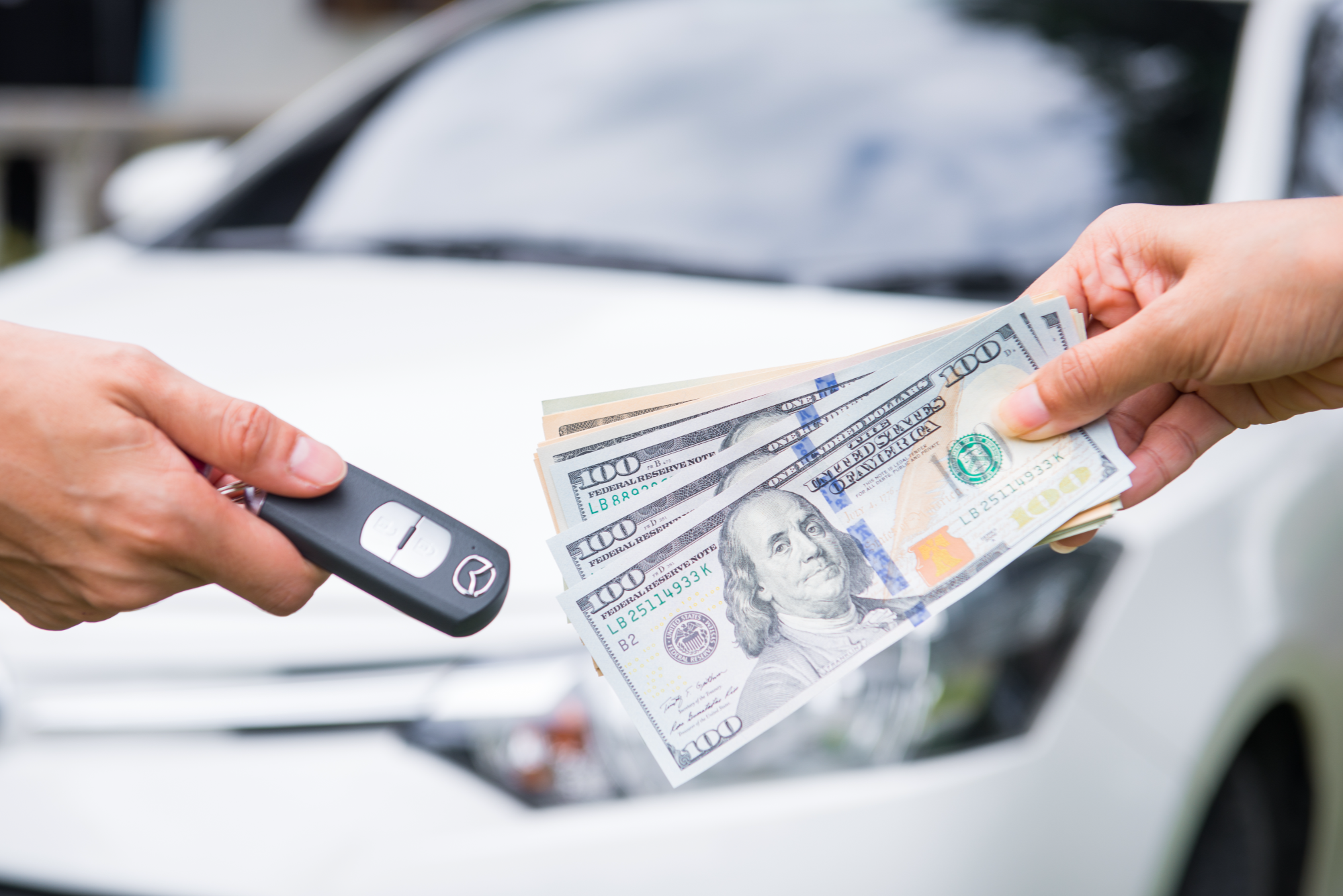
The payment and transfer of ownership are crucial stages in the car buying process in Costa Rica. It involves completing the financial transaction and officially transferring the vehicle's ownership from the seller to the buyer. Here's a detailed overview of these processes:
Payment:
Secure Payment Method: When buying a car in Costa Rica, it is essential to use a secure and traceable payment method. Avoid making cash payments, as they can be risky and may lack proper documentation. Instead, opt for payment methods like bank transfers, certified checks, or cashier's checks. These payment methods offer a clear record of the transaction and provide a level of security for both the buyer and seller.
Payment in Colones or Dollars: The currency used for the payment can vary. Some sellers prefer payments in Costa Rican colones (CRC), while others may accept payments in U.S. dollars (USD). Make sure to clarify the preferred currency with the seller in advance.
Full Payment or Down Payment: Depending on the agreement between the buyer and seller, the payment can be made in full at once or a down payment can be made initially, with the remaining amount paid at a later agreed-upon date.
Transfer of Ownership:
Delivery of Required Documents: To initiate the transfer of ownership, the seller must provide the necessary documents to the buyer. These documents typically include the original vehicle title and the "Marchamo" (circulation permit) showing that the yearly road tax has been paid.
Registration at the National Registry: Both the buyer and seller must visit the National Registry (Registro Nacional) together to complete the transfer of ownership. The National Registry is responsible for recording and maintaining vehicle ownership records.
Bill of Sale (Factura de Venta): The buyer and seller must complete a Bill of Sale, which is a legal document detailing the terms of the transaction, including the sale price, payment method, and other relevant details.
Cancellation of Existing Liens: If there is an outstanding loan or lien on the vehicle, the seller must provide evidence that the loan has been fully paid off or arrange for its cancellation before the transfer of ownership can be completed.
Transfer Fees and Taxes: The buyer is responsible for paying transfer fees and taxes at the National Registry. These fees are usually calculated based on a percentage of the vehicle's declared value.
New Vehicle Registration Certificate: After completing all the necessary paperwork and payments, the buyer will receive a new vehicle registration certificate (Tarjeta de Circulación) with their name as the new registered owner.
Update Insurance Information: The buyer must also update the vehicle's insurance policy with the new owner's information.
Finalizing the Process:
Once the transfer of ownership is completed at the National Registry, the car officially belongs to the buyer, and they can legally drive and operate the vehicle. It is crucial for both the buyer and seller to keep copies of all the relevant documentation for their records.
9. Registration Process – To understand the details
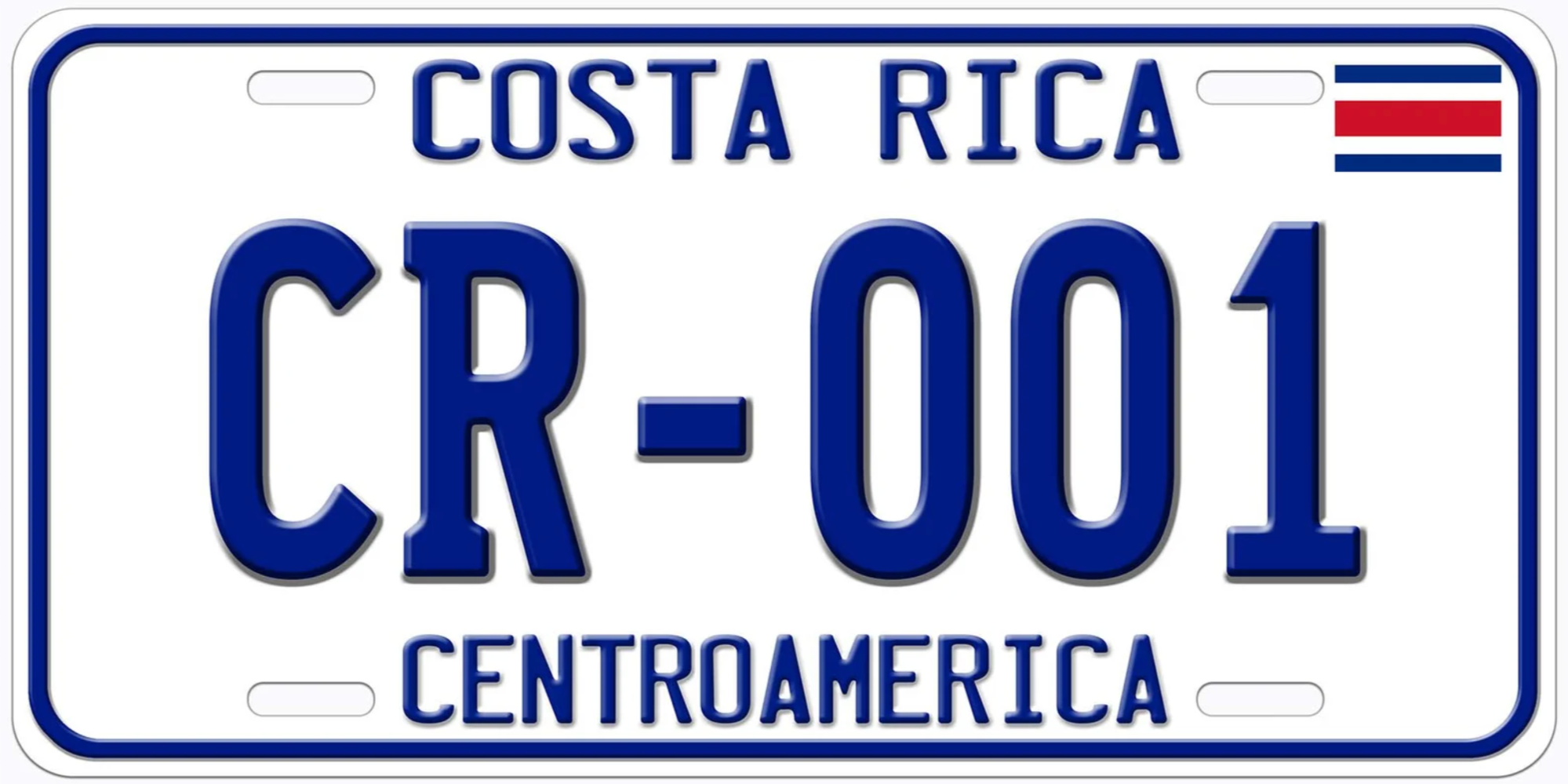
Registering a car in Costa Rica is a mandatory and essential step after purchasing a vehicle. It involves completing the necessary paperwork with the National Registry (Registro Nacional) to officially record the ownership and legal status of the car under the new owner's name. Here's a detailed guide on the car registration process in Costa Rica:
Required Documents:
Gather the following documents to initiate the registration process:
-
- Bill of Sale (Factura de Venta): The official sales contract between the buyer and seller, detailing the terms of the transaction, sale price, and payment method.
- Valid Identification: Both the buyer and seller must present their valid identification, such as a passport or Costa Rican cédula (identification card).
- Vehicle Title (Título de Propiedad): The original vehicle title must be provided by the seller, transferring ownership to the buyer.
- Marchamo Receipt: Proof that the annual circulation permit (Marchamo) has been paid. The Marchamo is a compulsory payment that covers the vehicle's road tax, compulsory insurance, and other fees.
- Proof of Address: Provide proof of the buyer's residential address in Costa Rica, such as a utility bill or rental agreement.
Visit the National Registry:
Both the buyer and seller must visit the nearest National Registry office to complete the registration process together. If the buyer is unable to visit in person, they may appoint a legal representative with a specific power of attorney to handle the registration on their behalf.
Prepare the Paperwork:
-
- Bill of Sale: The Bill of Sale is signed by both the buyer and seller in the presence of a notary public or an official at the National Registry. This document serves as proof of the vehicle's transfer of ownership.
- Vehicle Inspection Certificate: Present the vehicle inspection certificate obtained from the Revisión Técnica de Vehículos (RTV) process, confirming that the car meets the required safety and emissions standards.
Pay the Registration Fee:
The buyer is required to pay a registration fee, which is a percentage of the declared value of the vehicle. The exact amount may vary based on factors like the car's model, age, and market value.
Transfer of Ownership:
The National Registry will process the transfer of ownership, updating the vehicle's registration records with the new owner's details. Once the registration is complete, the buyer will receive a new vehicle registration certificate (Tarjeta de Circulación) with their name as the registered owner.
License Plates:
After the registration process is finalized, the buyer can obtain their personalized license plates. The National Registry will issue a specific combination of letters and numbers unique to the vehicle.
10. Insurance
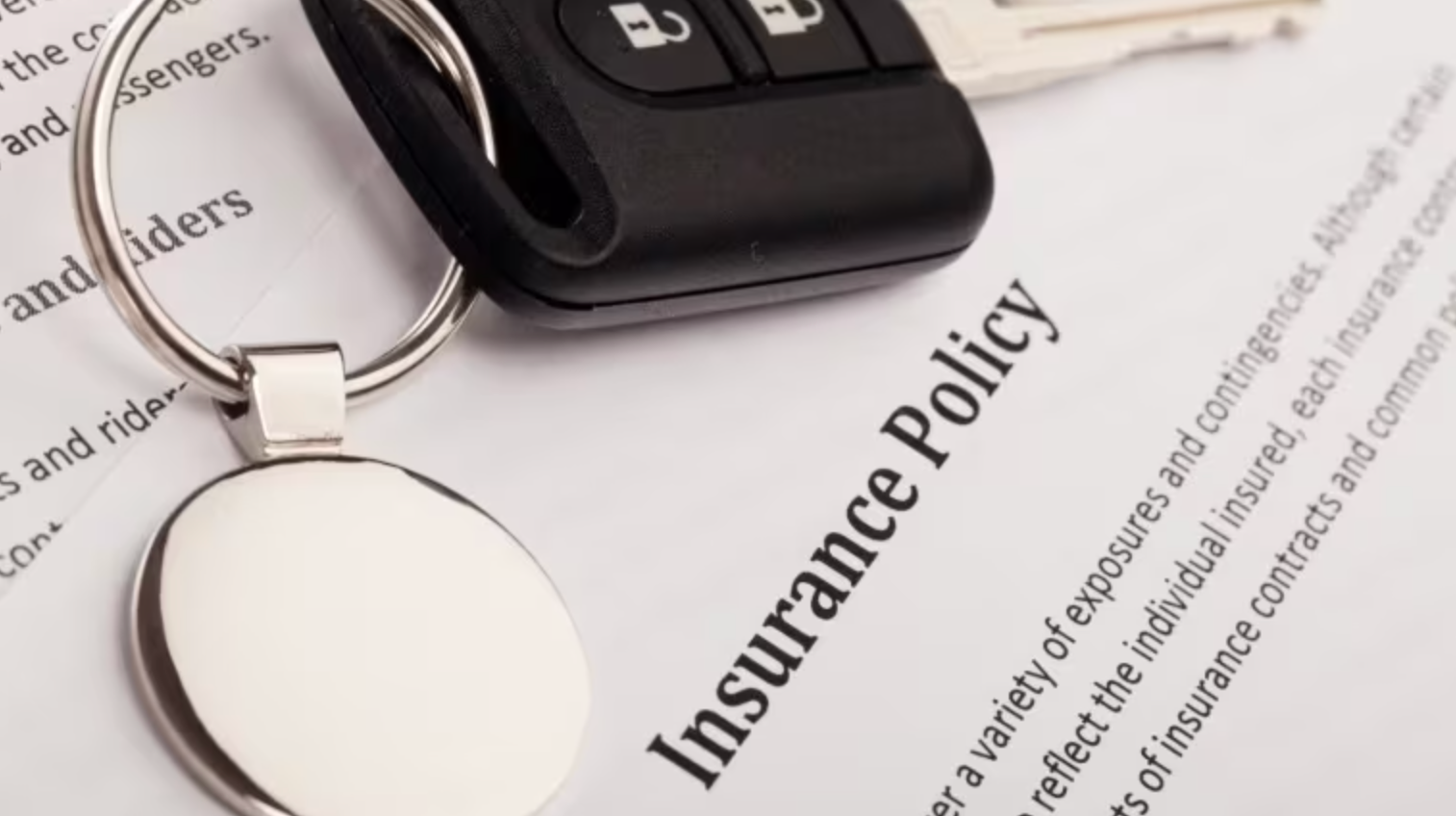
Having the right insurance coverage for your car is crucial in Costa Rica to ensure your safety and comply with legal requirements. There are two main types of car insurance available, each offering different levels of coverage:
-
- Mandatory Insurance (Seguro Obligatorio): This insurance, also known as SOA (Seguro Obligatorio de Automóviles), is required by law for all vehicles in Costa Rica. It provides coverage for third-party injuries and property damage resulting from an accident. The coverage limit for third-party injuries is set by the government and may vary from year to year. The cost of mandatory insurance is relatively low, usually ranging from $30 to $50 annually, making it an affordable option for all car owners.
- Comprehensive Insurance (Seguro de Vehículos): While not mandatory, comprehensive insurance offers broader coverage, providing protection for your own vehicle in addition to third-party liability. This type of insurance is recommended for those seeking enhanced protection against theft, vandalism, accidents, and natural disasters. Comprehensive insurance policies can vary significantly in coverage levels and prices, depending on factors such as the car's value, the deductible amount, the driver's age and driving history, and the chosen insurance company. Prices for comprehensive
Insurance - What are your options
insurance typically range from $400 to $1,500 per year, but it's essential to compare quotes from different insurance providers to find the best coverage at a competitive price.
Popular Insurance Companies in Costa Rica:
When looking for insurance coverage for your car, several reputable companies in Costa Rica offer a range of policies to meet different needs and budgets. Some of the popular insurance providers include:
-
- Instituto Nacional de Seguros (INS): As the state-owned insurance company, INS is one of the largest and most well-known insurers in Costa Rica. They offer a variety of insurance plans, including mandatory insurance and comprehensive coverage, with extensive coverage options and competitive prices.
- Mapfre: A global insurance company with a strong presence in Costa Rica, Mapfre provides comprehensive car insurance packages with customizable options to suit individual preferences and requirements.
- Assa Compañía de Seguros: Assa is a reputable insurance company that offers comprehensive car insurance policies with varying levels of coverage to cater to different customer needs.
- Sagicor: Sagicor is another popular choice for car insurance, offering competitive rates and comprehensive coverage options for both locals and non-residents.
Choosing the Right Insurance Policy:
When selecting an insurance policy for your car, consider the following factors:
-
- Coverage Levels: Assess the level of coverage provided by each policy and choose one that meets your specific needs. If you prefer more extensive protection, opt for comprehensive insurance.
- Deductible: Check the deductible amount, which is the portion you must pay out of pocket in case of a claim. A higher deductible usually leads to lower insurance premiums but may result in higher expenses at the time of a claim.
- Additional Benefits: Look for any additional benefits or riders offered by the insurance companies, such as roadside assistance, medical coverage, or legal assistance.
- Customer Service: Research the reputation of the insurance company in terms of customer service and claim settlement efficiency.
By carefully comparing insurance options and understanding the coverage provided, you can choose the best insurance policy to protect your car and ensure peace of mind while driving in Costa Rica. Remember that having the appropriate insurance coverage not only safeguards your vehicle but also provides financial security and compliance with local regulations.
11. Maintenance and Care – to get longevity out of your purchase

Maintaining and caring for your vehicle in Costa Rica is of utmost importance, especially considering the country's diverse terrain, weather conditions, and the impact of non-paved roads. Regular maintenance and proper care will not only extend the life of your vehicle but also ensure safe and trouble-free driving. Here are essential details to keep in mind:
Regular Maintenance:
-
- Oil Changes: Regularly change the engine oil and oil filter according to the manufacturer's recommendations. The warm and humid climate in Costa Rica may require more frequent oil changes.
- Fluids and Coolant: Check and top up all vehicle fluids, including coolant, brake fluid, transmission fluid, and power steering fluid.
- Air Filters: Replace air filters periodically to maintain proper engine performance, as dusty conditions can clog filters more quickly.
- Brake Inspection: Have the brakes inspected regularly, as driving on hilly terrain or non-paved roads can put additional strain on the braking system.
- Tire Maintenance: Regularly check tire pressure and tread depth, as the condition of roads can vary greatly in Costa Rica. Rotate and balance tires to ensure even wear.
- Spare Parts and Service: Choose a car model that has easily accessible spare parts and a network of service centers in Costa Rica.
Impact of Non-Paved Roads:
-
- Dust and Dirt Buildup: Driving on non-paved roads can lead to increased dust and dirt buildup in the engine and other vehicle components. Regular cleaning and maintenance are essential to prevent issues related to excessive debris.
- Suspension Wear: Non-paved roads can be rough and uneven, leading to additional wear on the vehicle's suspension system. Regularly inspect and maintain the suspension to ensure safe handling.
- Wheel Alignment: Driving on uneven surfaces can throw off the wheel alignment. Periodically check and adjust the wheel alignment to avoid uneven tire wear and improve fuel efficiency.
Weather Impact:
-
- Humidity and Corrosion: Costa Rica's humid climate can accelerate corrosion, especially in areas with high rainfall or near the coast. Regularly inspect the undercarriage and vulnerable parts for signs of rust and apply protective coatings as needed.
- Rain and Floods: Heavy rain and flooding can affect the vehicle's electrical components, brakes, and engine. Avoid driving through flooded areas, as water ingress can cause severe damage.
- Sun Exposure: Frequent exposure to the sun can lead to fading and damage to the vehicle's paint and interior. Regularly wash and wax the car to protect the paint from UV rays.
Off-Road Driving:
If you plan to drive off-road or in remote areas, consider equipping your vehicle with appropriate accessories such as skid plates and off-road tires to enhance its capability and protect vital components.
Regular Cleaning:
Wash your car regularly, especially after driving on non-paved roads. This will help remove dust, dirt, and mud, preventing excessive wear and damage to the vehicle's exterior and undercarriage.
12. Yearly Inspections – Understanding the RTV (Revisión Técnica de Vehículos)

The Revisión Técnica de Vehículos (RTV) is a mandatory technical vehicle inspection required by law in Costa Rica. This inspection is essential to ensure that vehicles on the road meet specific safety and emissions standards, contributing to safer and more environmentally friendly driving conditions. Here are more details about the RTV process:
The main objectives of the RTV are:
-
- Safety Inspection: The inspection aims to assess the vehicle's roadworthiness and safety aspects, ensuring that it meets essential safety standards to protect drivers, passengers, and other road users.
- Emissions Inspection: The RTV includes an emissions test to check the vehicle's exhaust emissions and verify compliance with environmental regulations, promoting cleaner air and reducing pollution.
Frequency of Inspection:
The RTV is required on an annual basis for all vehicles registered in Costa Rica. Vehicle owners must ensure that their cars undergo the inspection within the specified timeframe to maintain their roadworthiness and legality on the roads.
Inspection Centers:
RTV inspections are conducted at authorized inspection centers throughout Costa Rica. These centers are equipped with specialized equipment to perform comprehensive safety and emissions tests on various types of vehicles.
Inspection Procedure:
During the RTV process, the following aspects of the vehicle are inspected:
-
- Brakes: The braking system is checked for proper functioning and efficiency, ensuring it can adequately stop the vehicle when needed.
- Suspension and Steering: The suspension system and steering components are inspected for wear and damage to ensure stable and controlled driving.
- Lights and Indicators: All lights, including headlights, taillights, indicators, and brake lights, are checked for proper functioning.
- Tires: The condition and tread depth of the tires are assessed to ensure safe traction and handling.
- Emissions: The vehicle's exhaust emissions are measured to determine if they comply with established environmental standards.
- Safety Features: Safety features like seatbelts, airbags, and mirrors are examined for proper functioning.
- Chassis and Frame: The vehicle's chassis and frame are inspected for any signs of damage or structural issues.
Pass or Fail:
After the inspection, the vehicle is either issued a pass certificate or a fail report, depending on whether it meets the required standards. If the vehicle fails the inspection, the owner must address the identified issues and have the car re-inspected until it passes.
Consequences of Non-Compliance:
Driving a vehicle without a valid RTV certificate is a legal violation in Costa Rica and can result in fines or other penalties. Additionally, vehicles with expired RTV certificates may not be eligible for insurance coverage.
Conclusion
Buying a car in Costa Rica can open up a world of possibilities and adventures in this captivating country. By following the steps outlined in this comprehensive guide, you can make a well-informed decision, negotiate effectively, and navigate the car buying process with confidence. Remember to prioritize your needs, budget wisely, and seek professional guidance when needed. With careful planning and attention to detail, you can find the perfect vehicle that suits your lifestyle and explore Costa Rica's enchanting landscapes with comfort and freedom.
Categories
Recent Posts

